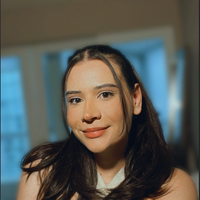
Need a better spot for your cash than a piggy bank? Managing your money starts with finding the right place for it. Your bank can help.
Banks offer different accounts for different needs—paying bills, saving money, and reaching goals. Chequing and savings accounts are the most common. Having both is best, but it's good to know how they're different.
Let's look at how to use these accounts to make the most of your money.
What is a savings account?
A savings account is for—you guessed it—saving money. While your chequing account handles your daily spending and bills, your savings account keeps money tucked away until you need it. Most banks and credit unions offer them.
These accounts pay you a bit of interest each month or year. It's usually less than what investments might earn, but savings accounts are steady. Your money won't drop in value unless you take some out. And thanks to compound interest, it might grow more than you think. Some savings accounts pay more interest than others.
If you're just starting to save, begin by building the habit of setting money aside regularly. Once you know how much you can save each month and can stick with it, you can plan for both short-term and long-term goals.
How savings accounts work
Banks need these accounts because they use your deposits for lending to others. That's why every bank and credit union offers them—whether they have physical branches or just work online. Some investment companies have savings accounts too.
Interest rates change. Unless there's a special promotion with a fixed rate until a certain date, banks can change their rates whenever they want. Generally, the better the rate, the more likely it is to change.
When the Bank of Canada adjusts its rates, your savings account rates often follow.
Some banks offer high interest savings accounts that pay more interest if you keep a bigger balance. These might be worth checking out.
Getting the most from your savings account
There are two main things you'll do with your savings account:
Deposits – You can put in any amount whenever you want. Your employer can also send your pay straight to this account if you'd like.
Withdrawals – You can take money out quickly using a debit card. But there might be limits on how much you can withdraw each day.
When picking a savings account, think about:
Interest – You'll earn some interest on your money. Savings accounts usually pay a bit more than chequing accounts. You might get better rates if you keep more than the minimum amount in your account. Check the interest rate when you open the account.
Fees – These vary based on the account type. Savings accounts often have higher transaction fees than chequing accounts since they're not meant for everyday banking. Know what transactions cost and watch for changes. Fees can go up or down year to year.
Protection – Your money is safe up to certain limits through the Canada Deposit Insurance Corporation (CDIC). This doesn't cover U.S. dollar accounts, though.
How interest works on your savings
When the bank adds interest, it matters. Some add it yearly, others monthly or daily. More often is better for you.
Let's say you put $1,000 in a savings account with 3% interest. After a year, you'd get $30. Next year, you earn interest on $1,030, not just your original $1,000. That extra $30 starts making money too.
Different accounts have different rules. Some need at least $100 before they pay interest. Others pay higher rates if you keep more money in them. Many online banks offer better rates than traditional banks. Check these details when opening an account.
Do savings accounts have fees?
Some savings accounts have fees, but not all. You might see monthly maintenance fees, transaction limits, and extra charges for going over your allowed withdrawals. At KOHO, you can get our Essential plan for $0 by setting up a recurring direct deposit or direct depositing $1000 or more.
And if you ever need quick access to funds before payday, check out our cash advance feature that helps you bridge financial gaps without the high fees of traditional payday loans.
When choosing a savings account, ask questions and do your homework to understand all the fees and benefits before opening one. And watch out for overdraft charges if you accidentally spend more than you have. Getting overdraft protection might save you from these extra costs if you sometimes overspend.
How to maximize earnings from a savings account
Most big banks pay tiny interest rates on savings accounts. But you can get much better returns if you shop around. Online banks often pay the highest rates because they don't spend money on branches.
Start by checking what your current bank offers. Even if it's not great, it gives you something to compare with other options.
But watch out for tricks as you hunt for better rates:
Some accounts only give the advertised high rate for a few months
Others cap how much money can earn the good rate
Some charge fees that eat up your interest
Earn Interest.
How much to keep in your savings account
How much you save depends on what you're using the account for.
If you're using it to hold extra money from your checking account, your balance will go up and down. If you're saving for something specific, you'll probably start small and grow it over time.
For emergency funds, try to save enough to cover 3-6 months of expenses. This helps when surprise bills hit or if you lose your job.
Depending on your situation, you might keep some emergency money in savings and invest the rest to earn more.
Paying taxes on money in your savings account
You'll need to pay tax on the interest you earn in your savings account. Your bank sends you a T5 slip each year that shows how much interest you made. Just include this slip when you file your taxes.
The T5 shows all your investment income for the year, including the interest from your bank accounts.
Want to know what all those numbers mean on your T5? Learn how to read your T5 slip.
If you're saving for the long haul, think about getting a Tax-Free Savings Account (TFSA). With a TFSA, you don't pay any tax on your interest or when you take money out.
Check out more about TFSAs if you're curious.
Setting up your savings for success
Saving money doesn't need to be complicated. With the right account, you can watch your money grow while keeping it safe and accessible.
The best approach? Have both a chequing account for daily spending and a savings account for your goals and emergency fund. Look for savings accounts with good interest rates, minimal fees, and deposit insurance protection.
Remember to compare options from different banks. Online banks often offer better rates than traditional ones. And don't forget about tax implications—regular savings accounts are taxable, but TFSAs let your money grow tax-free.
Start with regular deposits, even small ones. The habit matters more than the amount when you're beginning. Over time, the power of compound interest will help your savings grow faster than you might expect.
Whether you're saving for next year's vacation or your long-term future, the right savings account is a simple but powerful tool to help your money work harder for you.

About the author
Niki is a communications specialist with years of experience as a freelance and marketing agency content writer. With a knack for storytelling, Niki enjoys working with businesses from diverse industries to craft engaging content that resonates with target audiences worldwide.
Read more about this author